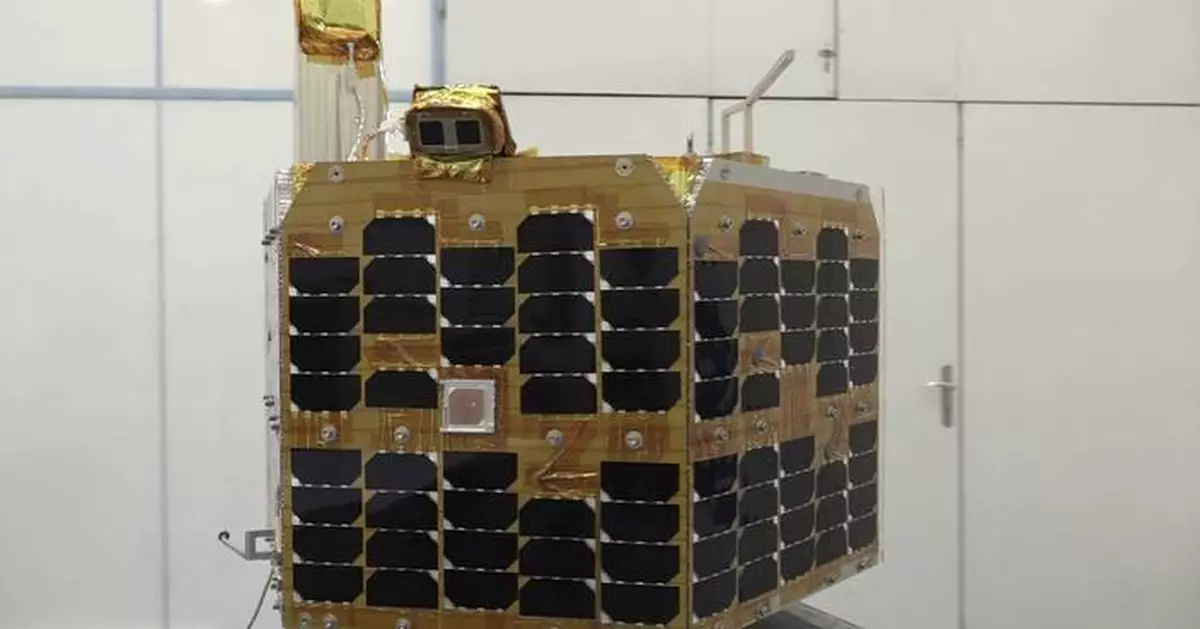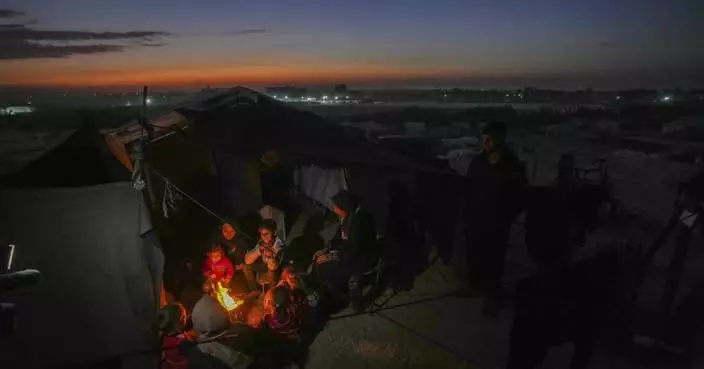TEHRAN, Iran (AP) — Iran launched a satellite into space Saturday with a rocket built by the country's paramilitary Revolutionary Guard, state-run media reported, the latest for a program the West fears helps Tehran advance its ballistic missile program.
Iran described the launch as the second such launch to put a satellite into orbit with the rocket. Independent scientists later confirmed the launch and that the satellite reached orbit.
Footage later released by Iranian media showed the rocket blast off from a mobile launcher. An Associated Press analysis of the video and other imagery later released suggested the launch happened at the Guard’s launch pad on the outskirts of the city of Shahroud, some 350 kilometers (215 miles) east of the capital, Tehran.
The launch comes amid heightened tensions gripping the wider Middle East over the ongoing Israel-Hamas war in the Gaza Strip, during which Tehran launched an unprecedented direct missile-and-drone attack on Israel. Meanwhile, Iran continues to enrich uranium to nearly weapons-grade levels, raising concerns among nonproliferation experts about Tehran's program.
Iran identified the satellite-carrying rocket as the Qaem-100, which the Guard used in January for another successful launch. Qaem means “upright” in Iran's Farsi language.
The solid-fuel, three-stage rocket put the Chamran-1 satellite, weighing 60 kilograms (132 pounds), into a 550-kilometer (340-mile) orbit, state media reported. The rocket bore a Quranic verse: "That which is left by Allah is better for you, if you are believers.”
A state-owned subsidiary of Iran's Defense Ministry and experts at the Aerospace Research Institute built the satellite with others to “test hardware and software systems for orbital maneuver technology validation,” state media said, without elaborating.
Gen. Hossein Salami, the head of the Guard, praised the launch in a statement and said scientists successfully overcame “the atmosphere of extensive and oppressive international sanctions."
Responding to questions from The Associated Press, the U.S. State Department said it has “long made clear our concern that Iran’s space launch vehicle programs provide a pathway to expand its longer-range missile systems.”
“We continue to use a variety of nonproliferation tools, in coordination with our allies and partners, to counter the further advancement of Iran’s ballistic missile program and its ability to proliferate missiles and related technology,” it added.
The United States had previously said Iran’s satellite launches defy a U.N. Security Council resolution and called on Tehran to undertake no activity involving ballistic missiles capable of delivering nuclear weapons. U.N. sanctions related to Iran’s ballistic missile program expired last October.
Under Iran’s relatively moderate former President Hassan Rouhani, the Islamic Republic slowed its space program for fear of raising tensions with the West. Hard-line President Ebrahim Raisi, a protege of Supreme Leader Ayatollah Ali Khamenei who came to power in 2021, has pushed the program forward. Raisi died in a helicopter crash in May.
It's unclear what Iran's new president, the reformist Masoud Pezeshkian, wants for the program as he was silent on the issue while campaigning.
The U.S. intelligence community’s worldwide threat assessment this year said Iran's development of satellite launch vehicles “would shorten the timeline” for Iran to develop an intercontinental ballistic missile because it uses similar technology.
Intercontinental ballistic missiles can be used to deliver nuclear weapons. Iran is now producing uranium close to weapons-grade levels after the collapse of its nuclear deal with world powers. Tehran has enough enriched uranium for “several” nuclear weapons, if it chooses to produce them, the head of the International Atomic Energy Agency repeatedly has warned.
Iran has always denied seeking nuclear weapons and says its space program, like its nuclear activities, is for purely civilian purposes. However, U.S. intelligence agencies and the IAEA say Iran had an organized military nuclear program up until 2003.
The launch also came ahead of the second anniversary of the death of 22-year-old Mahsa Amini, which sparked nationwide protests against Iran's mandatory headscarf, or hijab, law and the country's Shiite theocracy.
Gambrell reported from Dubai, United Arab Emirates.

This image taken from video released by Noghtezan shows an Iranian satellite launch Saturday, Sept. 14, 2024, in Iran. (Noghtezan via AP)

This undated photo provided by Iranian Space Agency, ISA, shows Chamran-1 satellite. Iran launched the satellite into space Saturday, Sept. 14, 2024, with a rocket built by the country's paramilitary Revolutionary Guard, state-run media reported, the latest for a program the West fears helps Tehran advance its ballistic missile program. (ISA via AP)












